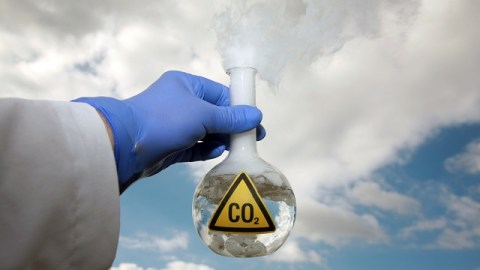New Process Could Someday Turn Atmospheric CO2 Into Biofuel

What’s the Latest Development?
University of Georgia researchers have found a way to turn carbon dioxide from the atmosphere into industrial products by modifying a microorganism, Pyrococcus furiosus, that normally resides in ocean waters near super-hot geothermal vents. The modifications resulted in an organism that is able to transform carbon dioxide into 3-hydroxypropionic acid, a common industrial chemical. The researchers believe that additional modifications could result in variations of carbon-dioxide-consuming P. furiosus that can create other products, including fuel. A paper describing the process was published online earlier this week in Proceedings of the National Academy of Sciences.
What’s the Big Idea?
The creation of biofuels from biomass crops involves extracting sugars produced via photosynthesis, a process that is difficult to achieve in an efficient manner. The use of microorganisms genetically modified to convert carbon dioxide would take the plants out of the equation, says biotechnology professor and paper co-author Michael Adams. Additionally, the amount of carbon dioxide released into the air when such fuel is burned would equal the amount used to make it, resulting in a cheap, carbon-neutral alternative to fossil fuels. Adams says the next step is to “refine the process and begin testing it on larger scales.”
Photo Credit: Shutterstock.com





